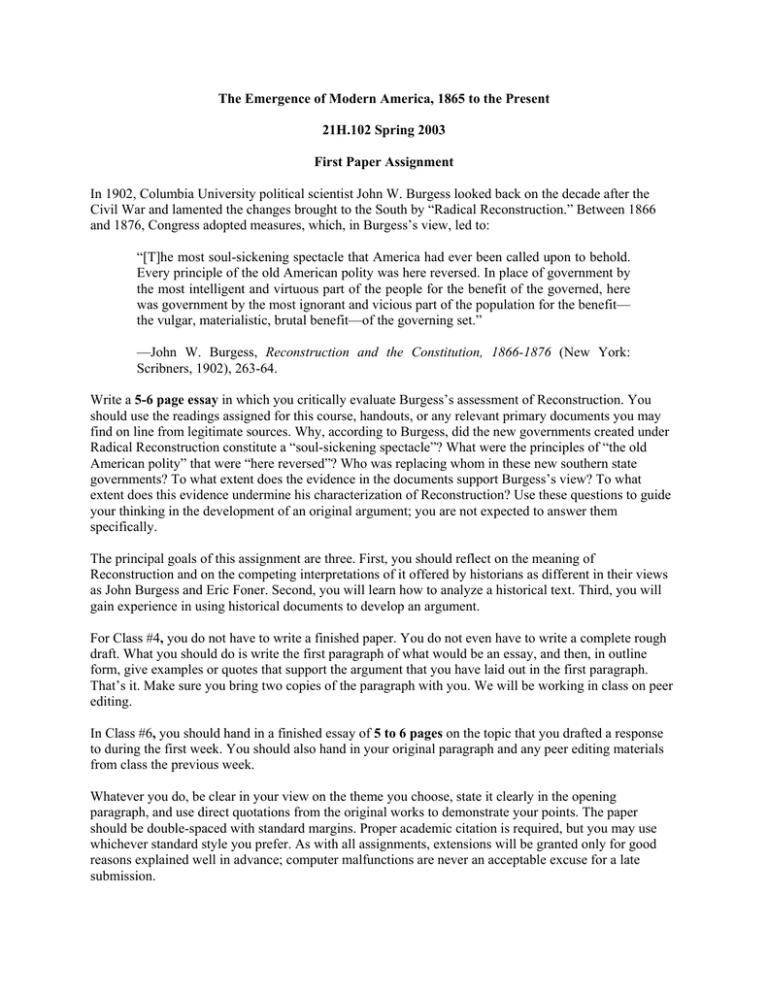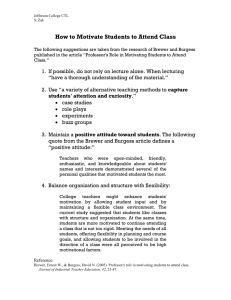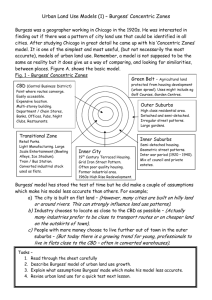The Emergence of Modern America, 1865 to the Present
advertisement

The Emergence of Modern America, 1865 to the Present 21H.102 Spring 2003 First Paper Assignment In 1902, Columbia University political scientist John W. Burgess looked back on the decade after the Civil War and lamented the changes brought to the South by “Radical Reconstruction.” Between 1866 and 1876, Congress adopted measures, which, in Burgess’s view, led to: “[T]he most soul-sickening spectacle that America had ever been called upon to behold. Every principle of the old American polity was here reversed. In place of government by the most intelligent and virtuous part of the people for the benefit of the governed, here was government by the most ignorant and vicious part of the population for the benefit— the vulgar, materialistic, brutal benefit—of the governing set.” —John W. Burgess, Reconstruction and the Constitution, 1866-1876 (New York: Scribners, 1902), 263-64. Write a 5-6 page essay in which you critically evaluate Burgess’s assessment of Reconstruction. You should use the readings assigned for this course, handouts, or any relevant primary documents you may find on line from legitimate sources. Why, according to Burgess, did the new governments created under Radical Reconstruction constitute a “soul-sickening spectacle”? What were the principles of “the old American polity” that were “here reversed”? Who was replacing whom in these new southern state governments? To what extent does the evidence in the documents support Burgess’s view? To what extent does this evidence undermine his characterization of Reconstruction? Use these questions to guide your thinking in the development of an original argument; you are not expected to answer them specifically. The principal goals of this assignment are three. First, you should reflect on the meaning of Reconstruction and on the competing interpretations of it offered by historians as different in their views as John Burgess and Eric Foner. Second, you will learn how to analyze a historical text. Third, you will gain experience in using historical documents to develop an argument. For Class #4, you do not have to write a finished paper. You do not even have to write a complete rough draft. What you should do is write the first paragraph of what would be an essay, and then, in outline form, give examples or quotes that support the argument that you have laid out in the first paragraph. That’s it. Make sure you bring two copies of the paragraph with you. We will be working in class on peer editing. In Class #6, you should hand in a finished essay of 5 to 6 pages on the topic that you drafted a response to during the first week. You should also hand in your original paragraph and any peer editing materials from class the previous week. Whatever you do, be clear in your view on the theme you choose, state it clearly in the opening paragraph, and use direct quotations from the original works to demonstrate your points. The paper should be double-spaced with standard margins. Proper academic citation is required, but you may use whichever standard style you prefer. As with all assignments, extensions will be granted only for good reasons explained well in advance; computer malfunctions are never an acceptable excuse for a late submission.


